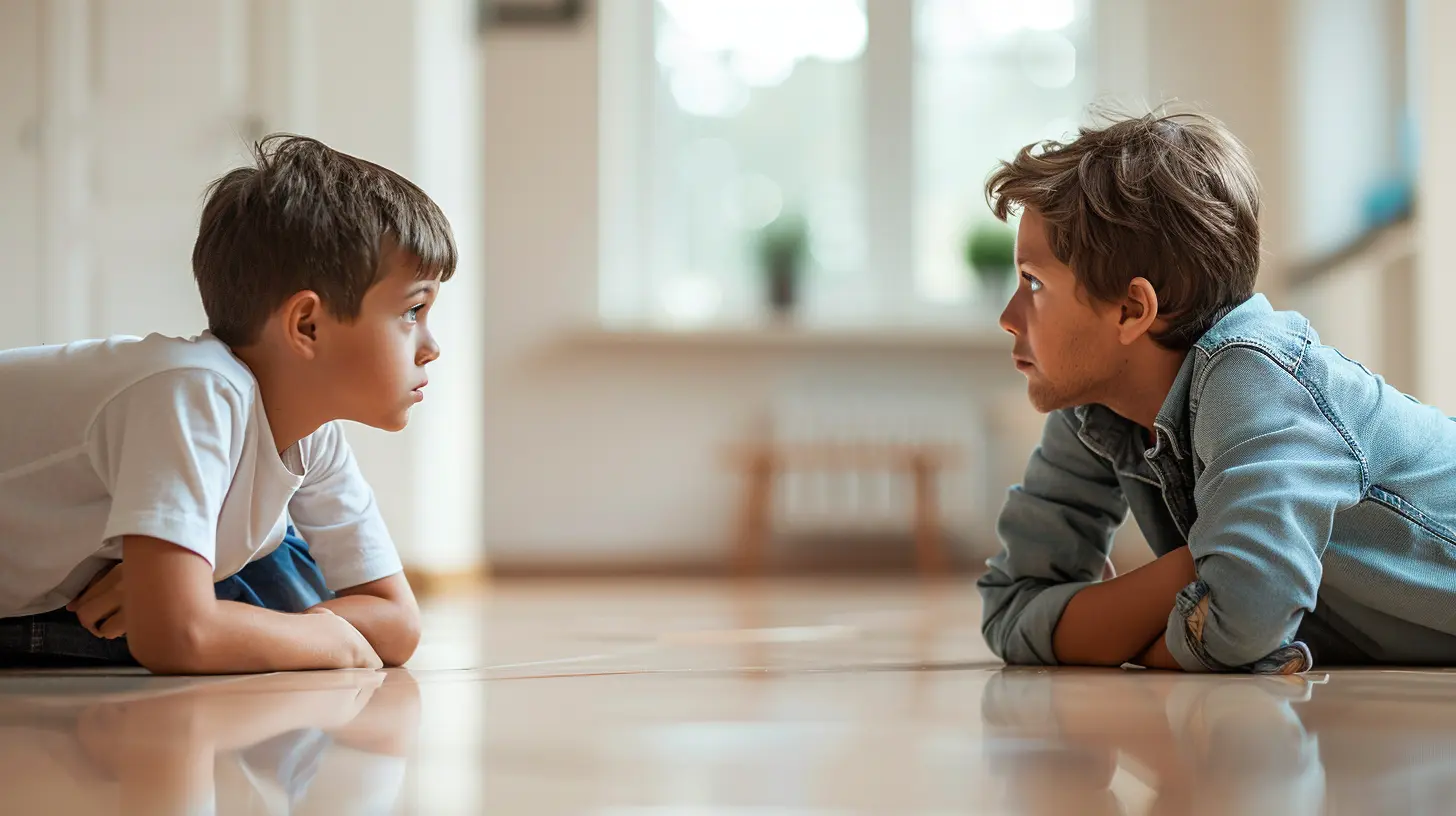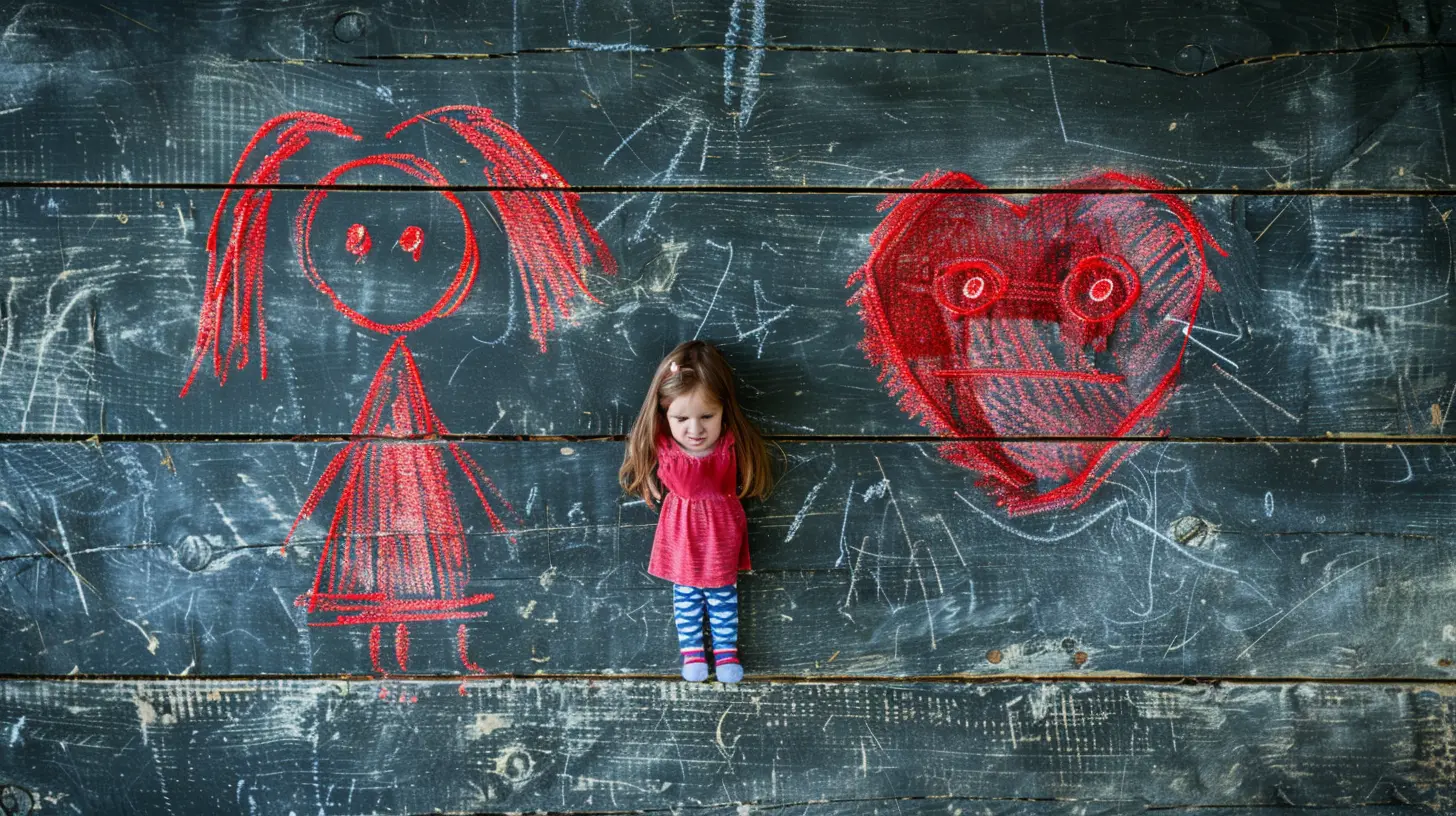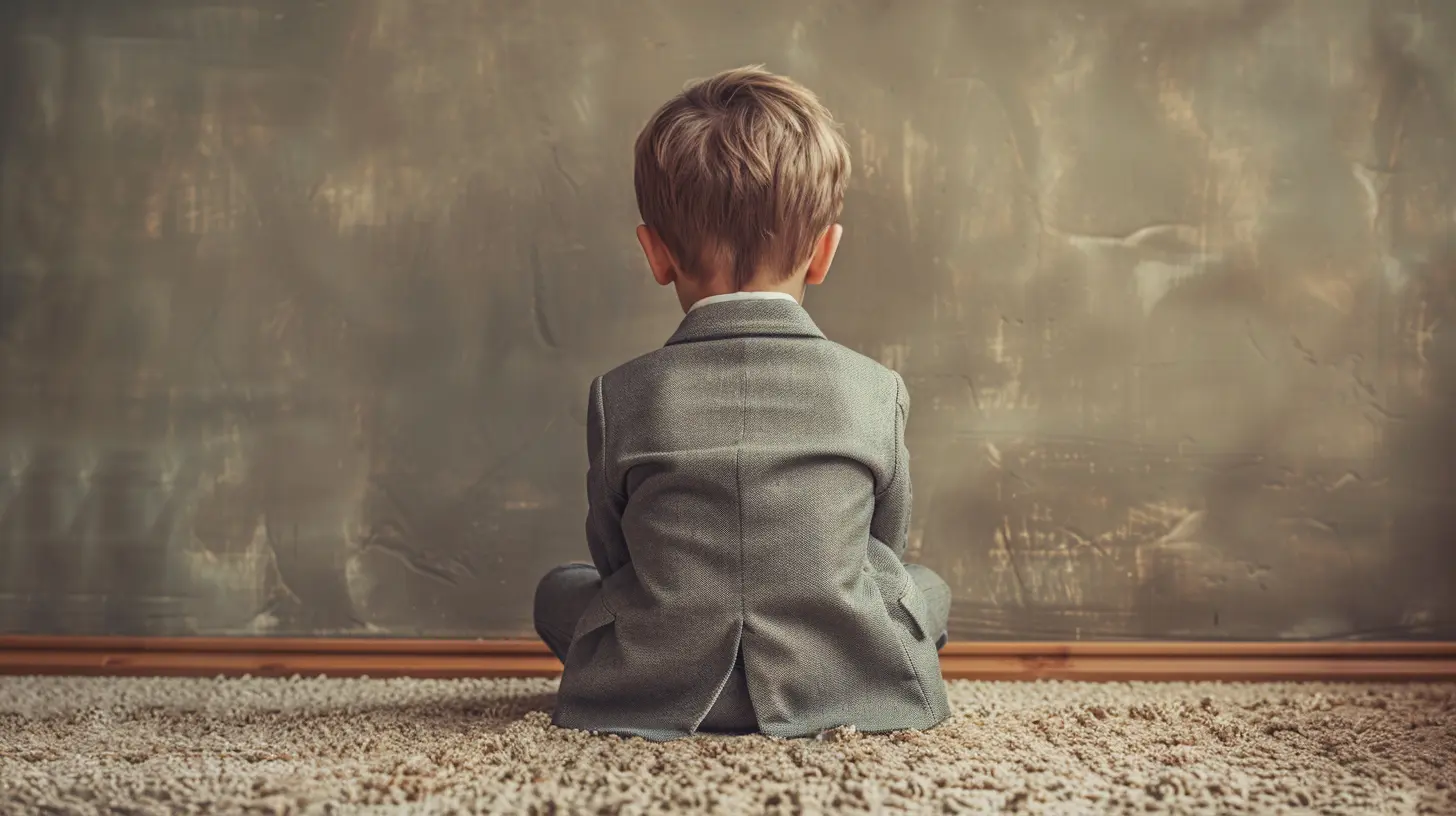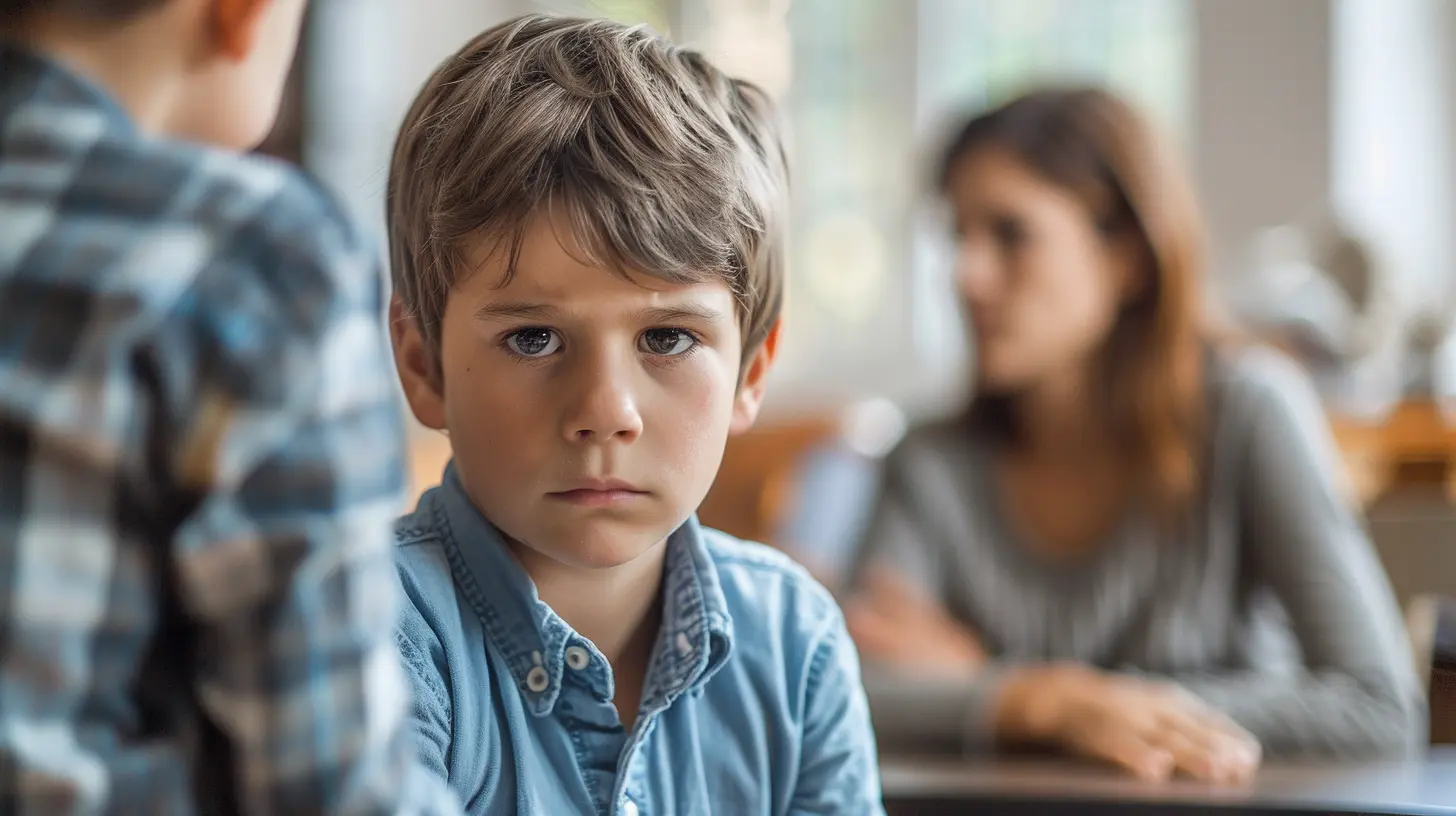Shaming as Discipline: The Long-Term Harm You Don’t See
6 September 2025
Parenting is no easy feat. We all want our kids to grow into kind, responsible, and confident people. But in the heat of frustration, many parents turn to shaming as a form of discipline, believing it will teach their child a lesson.
"You should be ashamed of yourself!" "Look at what you did—what will people think?" "Why can't you behave like your sister?"
These words may seem harmless or even necessary at the moment, but what if I told you that shaming could do more harm than good? What if this seemingly minor approach to discipline leaves scars far deeper than we ever imagined?
Let’s break it down and uncover the hidden damage shaming can cause—and what we can do instead. 
What Is Shaming in Parenting?
Shaming is when a parent or caregiver makes a child feel embarrassed, guilty, or unworthy in an attempt to correct behavior. It can be verbal or nonverbal and typically involves ridicule, humiliation, or comparison.Some common examples include:
- Calling a child "lazy," "stupid," or other negative labels
- Publicly humiliating them for their mistakes
- Comparing them to other children in a negative way
- Using sarcasm to mock their actions
- Posting their misbehavior online as a "lesson"
At first glance, it might seem effective. A child may immediately stop misbehaving when they feel embarrassed. But here’s the catch—shame doesn’t actually teach better behavior. Instead, it instills fear, self-doubt, and resentment. 
The Hidden Damage of Shame
Shaming doesn’t just affect kids in the moment. It sticks with them, shaping their self-image and emotional well-being. Here’s how:1. It Lowers Self-Esteem
Children rely on their parents' words to define their self-worth. When a child hears, "You're such a disappointment," or "Why can't you be better?" those words become part of their inner voice. Over time, they start believing they are not good enough.Instead of encouraging improvement, shame makes children feel flawed at their core. They don’t just think they made a mistake—they believe they are a mistake.
2. It Damages the Parent-Child Relationship
Imagine you had a boss who constantly called you out in front of your colleagues, made you feel incompetent, and compared you to others. Would you trust them? Would you feel motivated to work harder?Shame creates distance between parents and children, making kids feel emotionally unsafe. Instead of coming to you for guidance and support, they may withdraw, lie, or seek validation elsewhere.
3. It Encourages Fear Instead of Growth
When kids are ashamed, they don’t learn why their actions were wrong. They only learn to fear being caught.For example, if you shame your child for getting a bad grade—"Are you even trying? This is embarrassing!"—they might study harder out of fear. But deep down, they won’t develop a love for learning. They’ll just want to avoid humiliation.
Fear-driven discipline doesn’t build character—it builds anxiety.
4. It Triggers Long-Term Anxiety and Depression
Studies show that chronic shame is linked to mental health struggles like anxiety and depression. When kids grow up feeling constantly judged or belittled, they internalize negativity and carry it into adulthood.Shamed children often develop:
- Perfectionist tendencies (fearing they’re never good enough)
- Social anxiety (worried about being judged)
- Self-doubt (struggling with confidence and decision-making)
Some even carry these wounds into their own parenting, unintentionally repeating the cycle.
5. It Doesn’t Teach Emotional Regulation
One of the biggest myths about shaming is that it "teaches a lesson." But does it really?Think about it—when kids are overwhelmed with shame, they don’t process their emotions in a healthy way. Instead of reflecting on their behavior, they may bottle up emotions, lash out, or avoid responsibility altogether.
Mistakes should be a learning experience, not a source of humiliation. Kids need guidance, not guilt. 
Why Do Parents Use Shame?
If shame is so damaging, why do so many parents use it? Usually, it comes down to three things:1. It Was Used on Them – Many adults were raised with shame-based discipline and believe it’s "just how parenting works."
2. It Feels Effective in the Moment – Shame often leads to immediate compliance, which can feel like a "quick fix."
3. Frustration Takes Over – Parenting is hard, and sometimes, emotions get the best of us.
The good news? You don’t have to continue the cycle. There are better, healthier ways to discipline. 
What to Do Instead of Shaming
So how do we correct behavior without shame? Here are some powerful alternatives:1. Focus on the Behavior, Not the Child
Instead of saying, "You're so lazy," try, "I've noticed you haven't finished your homework. Let's figure out a plan together."Attacking the child’s character leads to shame. Addressing the behavior encourages growth.
2. Use Positive Discipline
Positive discipline involves setting clear boundaries while maintaining respect and empathy. Some strategies to try:- Natural Consequences: Instead of punishment, allow children to experience the natural outcome of their actions (e.g., if they forget their lunch, they’ll understand the importance of packing it).
- Logical Consequences: Make consequences related to the behavior (e.g., if they don’t clean up, they lose playtime to clean).
- Problem-Solving Together: Ask, "What can we do next time to make a better choice?"
3. Encourage Open Communication
Let your child know that mistakes are part of learning. When they mess up, help them work through emotions with open, honest conversations instead of humiliation.Try asking:
- "What do you think went wrong?"
- "How can we handle this better next time?"
- "I know you’re upset—do you want to talk about it?"
When kids feel safe talking to you, they’ll be more willing to learn from their mistakes.
4. Be a Role Model
Kids learn how to handle mistakes by watching you. If you lose your temper and later say, "I shouldn’t have yelled. I was frustrated, but I should have handled that differently," you’re teaching accountability.When parents own their mistakes, kids learn that growth is more valuable than shame.
5. Practice Gentle Encouragement
Instead of shame, offer support:- "I see you're struggling with this. Let’s work on it together."
- "I know you can do better, and I believe in you."
- "It’s okay to make mistakes. What matters is what we learn from them."
A child who feels supported is more likely to develop resilience, confidence, and emotional intelligence.
Final Thoughts
Discipline should be about teaching, not tearing down. While shame might seem effective at the moment, its long-term consequences can be devastating. By focusing on guidance, empathy, and respect, we can raise children who feel valued, understood, and capable of growth.At the end of the day, every child deserves to feel loved—even when they make mistakes.
all images in this post were generated using AI tools
Category:
Parenting MistakesAuthor:

Austin Wilcox
Discussion
rate this article
1 comments
Elwynn Rogers
Thank you for shedding light on this important issue. Understanding the long-term effects of shaming can truly transform our parenting approach.
September 27, 2025 at 3:45 AM

Austin Wilcox
Thank you for your thoughtful response! I'm glad the article resonated with you and sparked reflection on parenting approaches.


